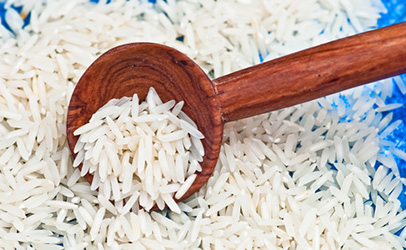 Rep. Rosa DeLauro (D-CT) introduced a bill in Congress on Thursday which would limit the amount of inorganic arsenic permitted in rice and rice-based foods. The R.I.C.E (Reducing food-based Inorganic Compounds Exposure) Act would require the Food and Drug Administration to set a maximum permissible level of inorganic arsenic in rice and food containing rice. “Inorganic arsenic is a known carcinogen, and long-term oral exposure to high levels of inorganic arsenic is associated with developmental defects, cardiovascular disease, neurotoxicity, and diabetes, according to the World Health Organization,” reads DeLauro’s bill. FDA has established a limit of 10 parts per billion in bottled water and has also proposed a limit of 10 parts per billion in apple juice, but there are no federal limits for arsenic in most foods, including rice, which takes up inorganic arsenic from soil and water more readily than other grains. The R.I.C.E. Act directs FDA to develop a limit that protects the health of children and takes the rate of brain development and any differences in the metabolization of arsenic in children, (as compared to adults) into account. Last November, Consumer Reports tested the inorganic arsenic content of different samples of rice and found that the levels depended on the type of rice and where it was grown. Tests also found lower arsenic options for other grains such as amaranth, millet, and quinoa. Consumer Reports also developed a point system for managing rice exposure, suggesting that children rarely eat hot rice cereal or rice pasta and that those younger than five should not replace milk with rice drinks. “The federal government needs to step in to make sure that American families are consuming food that is safe,” DeLauro said. “We have known about the dangers of arsenic for some time now, and there is no excuse for us not to take action.”
Rep. Rosa DeLauro (D-CT) introduced a bill in Congress on Thursday which would limit the amount of inorganic arsenic permitted in rice and rice-based foods. The R.I.C.E (Reducing food-based Inorganic Compounds Exposure) Act would require the Food and Drug Administration to set a maximum permissible level of inorganic arsenic in rice and food containing rice. “Inorganic arsenic is a known carcinogen, and long-term oral exposure to high levels of inorganic arsenic is associated with developmental defects, cardiovascular disease, neurotoxicity, and diabetes, according to the World Health Organization,” reads DeLauro’s bill. FDA has established a limit of 10 parts per billion in bottled water and has also proposed a limit of 10 parts per billion in apple juice, but there are no federal limits for arsenic in most foods, including rice, which takes up inorganic arsenic from soil and water more readily than other grains. The R.I.C.E. Act directs FDA to develop a limit that protects the health of children and takes the rate of brain development and any differences in the metabolization of arsenic in children, (as compared to adults) into account. Last November, Consumer Reports tested the inorganic arsenic content of different samples of rice and found that the levels depended on the type of rice and where it was grown. Tests also found lower arsenic options for other grains such as amaranth, millet, and quinoa. Consumer Reports also developed a point system for managing rice exposure, suggesting that children rarely eat hot rice cereal or rice pasta and that those younger than five should not replace milk with rice drinks. “The federal government needs to step in to make sure that American families are consuming food that is safe,” DeLauro said. “We have known about the dangers of arsenic for some time now, and there is no excuse for us not to take action.”
Sponsored by Marler Clark
